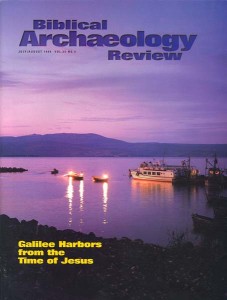God as Divine Kinsman
What covenant meant in ancient Israel
The covenant between God and the people of Israel “must be understood on the basis of political and judicial categories,” declares the highly regarded HarperCollins Bible Dictionary.1 Well, yes and no. In a groundbreaking new essay, Frank Moore Cross, one of the leading Biblical exegetes of our time and Hancock Professor Emeritus at Harvard, places the concept of covenant in a far broader setting—that of kinship relations—and teases out some important new implications.
The ancient covenant originated, says Cross, as a “legal means by which the duties and privileges of kinship may be extended to another individual or group” (emphasis supplied). By establishing a covenant, an outsider was brought into a kinship relationship—a kind of familial conversion process, resulting in what Cross calls kinship-in-law, as opposed to kinship-in-flesh. Through its covenant with God, Israel becomes the “kindred of Yahweh.” Yahweh, in effect, adopts the people of Israel. Mutual obligations are thereby created.
Already a library member? Log in here.
Institution user? Log in with your IP address.



